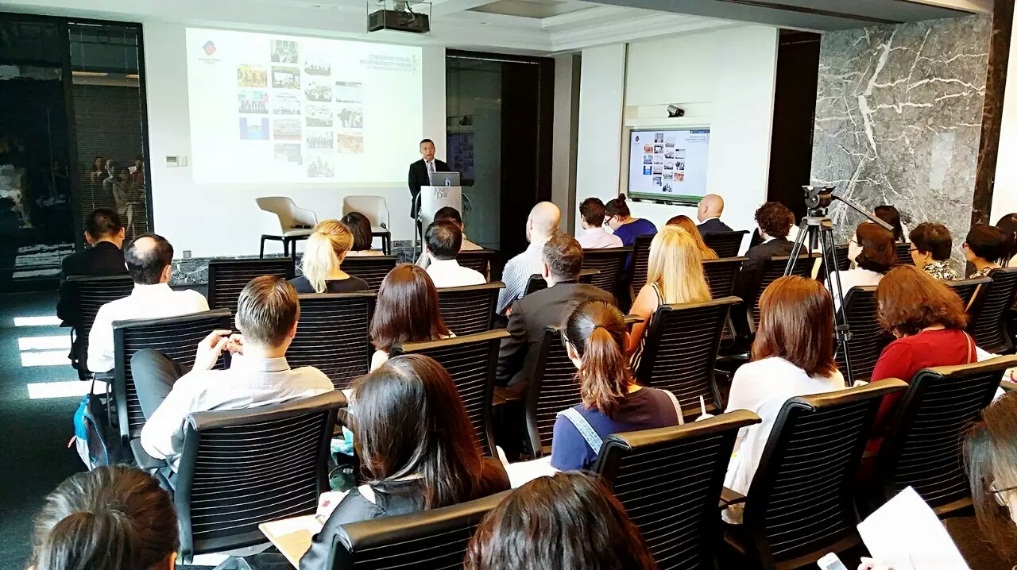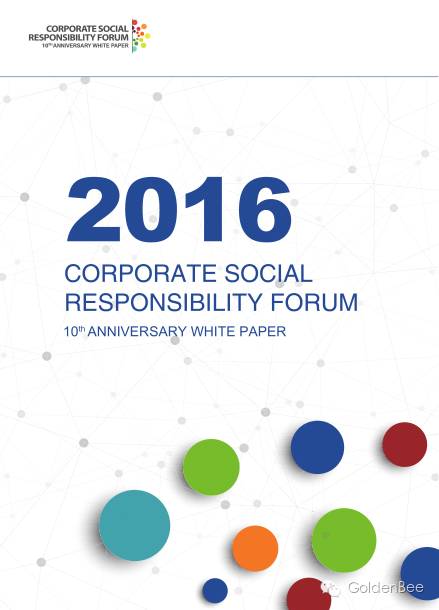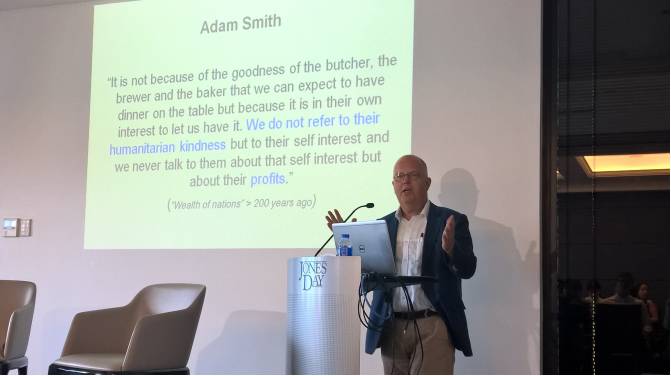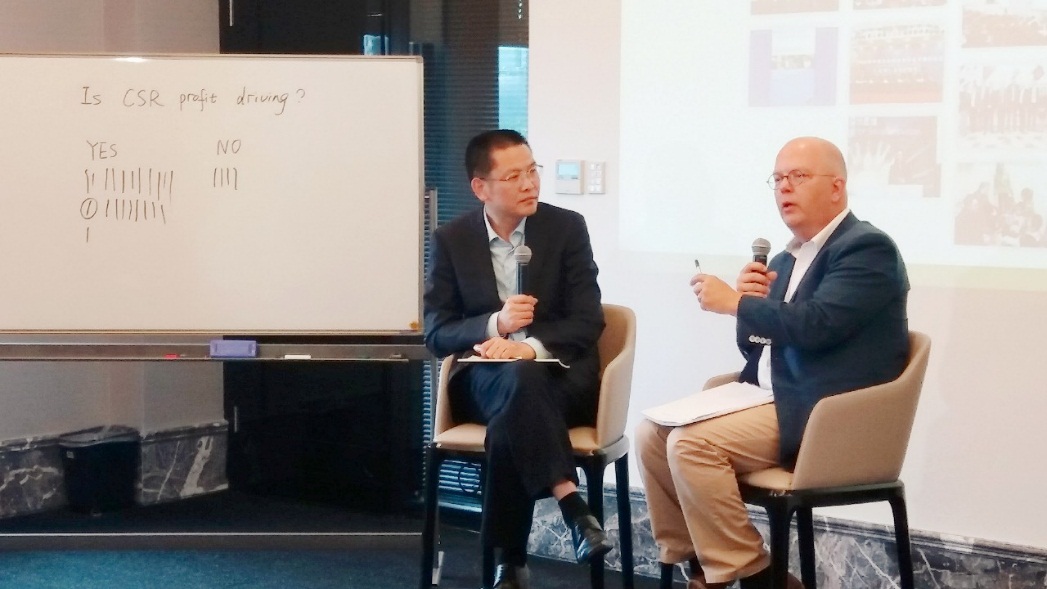CEO Talks: CSR vs. Profitability
2016-09-22GoldenBeeadmin0010


Mr. Mats Harborn, Executive Director of Scania China Strategic Office made another speech about the release of white paper on behalf of membership countries of EUCCC. He reviewed the significant changes of China society towards the awareness of CSR since China has become a member of WTO, as well as how EUCCC pushes those member enterprises to combine practices with the value of CSR by cross-field collaboration. He affirmed the positive influence of Chinese government in promoting the development of CSR, and said that the 13th Five-Year Plan of China has included the concepts of sustainable development, and each organization contributes to realizing the goal.

During the section of CEO TALK, Mr. Mats Harborn identified himself as the decision maker of Scania China to explain his own understanding about the relationship between CSR and enterprises’ profitability. He said, the profitability is at the priority position and also is deemed as the guarantee of sustainable development; but enterprises should not only bring benefit to itself, but also help their customers to be profitable as well. Eventually this forms a cycle that contains all stakeholders.
Moreover, Mr. Mats Harborn clarified the management techniques of Scania China is value-orientated, and the gaining of value is the cornerstone of business operation.
To the management system of Scania China, there are two vital principles: the first one is to guarantee the individual working quality, in other word, each employees should hand high quality intermediate goods over to the subsequent level employees. Otherwise, waste and low efficiency will be raised. The second is the demand-oriented output to reduce the waste within the production line. Another important principle throughout the entire value chain is “keep changing” which means learning and upgrading from differences between positive and negative sides to improve efficient and quality.
Additionally, Mr. Mats Harborn believes that by adapting sustainable energy, intelligent transportation and efficient energy utilization, most of sustainable issues will be addressed in future; for instance, climate changing, overgrowing population, sustainable energy, CO2 emission, noisy pollution and so on.

During the CEO Talk, Mr. Yin Gefei, Vice President of China WTO Tribune made congratulation to the white paper, and displayed another similar report Enterprises for People or People for Enterprises? Harmony Creation and Sustainable Society. As a pioneer and promoter of CSR development in China, he introduced the four stages of CSR development over the past five decades; meanwhile, he affirmed what EUCCC did in “Five-in-one” CSR development pattern in China ,in which government, sector, enterprise, society and international cooperation have formed five forces in promoting CSR development
There were some subjects about CSR have been argued deeply in the conversation, like “whether CSR should gain more profitability”, “does CSR conflict with the profitability in some cases”. The participants also proposed some other questions, such as how to measure the profitability of CSR, how to allocate resources between profitable and non-profitable projects and so on.
By the end of the forum, Mr. Yin Gefei made a summary on the profitability of CSR; he said, sometimes CSR is conformed to the profitability of enterprise, however they are conflicted with each other under some circumstances. It’s easier to make a choice while they match each other; nevertheless, if they cannot fit each other and when they are out of the range of legislation, a long term strategic way of thinking for integrating CSR into the value of enterprises will benefit the sustainable development of society and further help enterprise achieve the goal of sustainable operation through the responsible competiveness, eventually the conflict will be solved.
Best Practices
- The 100-year brand — Air Liquide also has a sense of juvenile
- Beijing Public Transportation Corporation: Developing green transportation to build a harmonious and livable capital
- CGN: Building a modern factory in barren deserts and developing a new win-win cooperation model along “Belt and Road”
Upcoming Event

All the materials on the site “Source: XXX (not from this site)” have been reprinted from other media. They do not imply the agreement by the site.
All the materials with “Source: CSR-China Website” are the copyright of CSR-China Website. None of them may be used in any form or by any means without permission from CSR-China Website.
GoldenBee Official WeChat
Copyright © Csr-china.net All Right Reserved.
京ICP备19010813号










